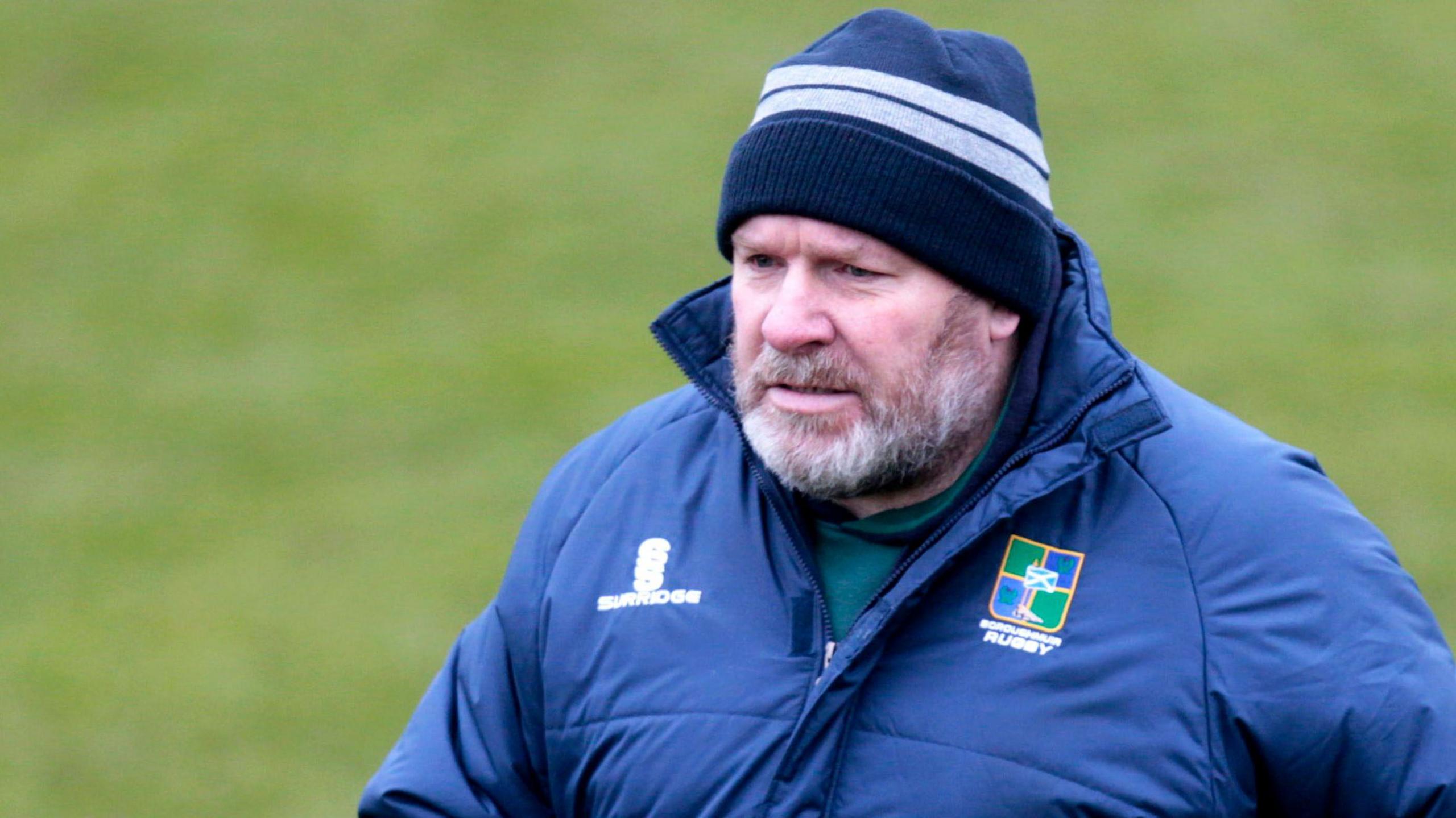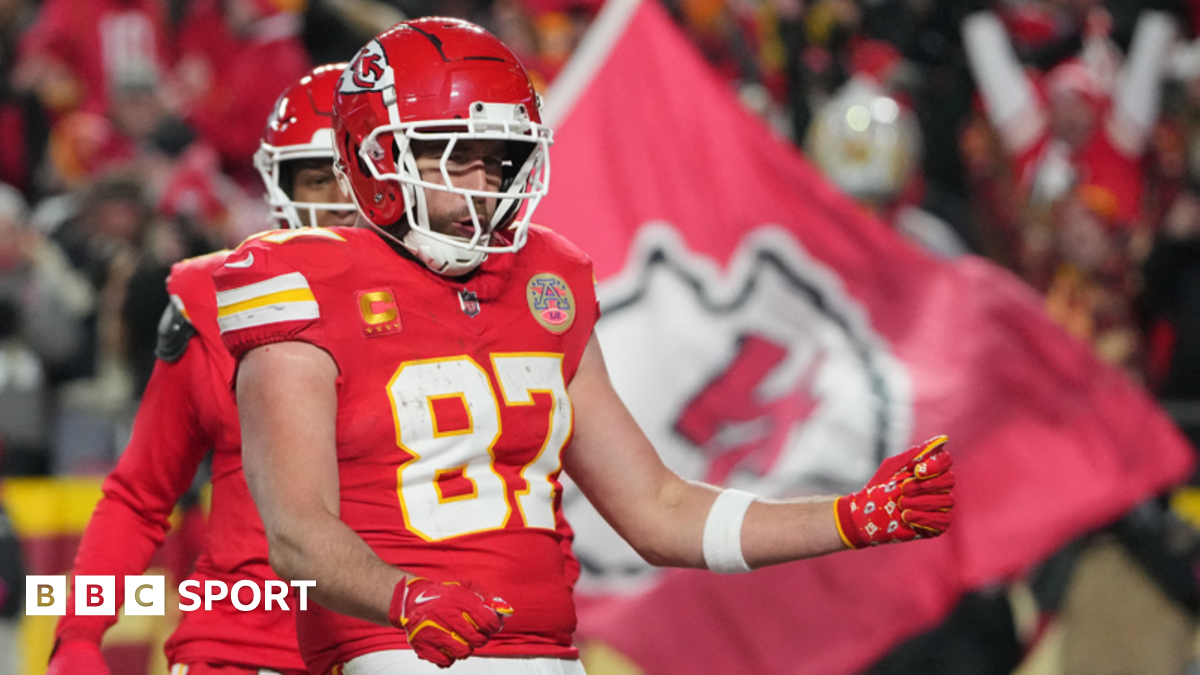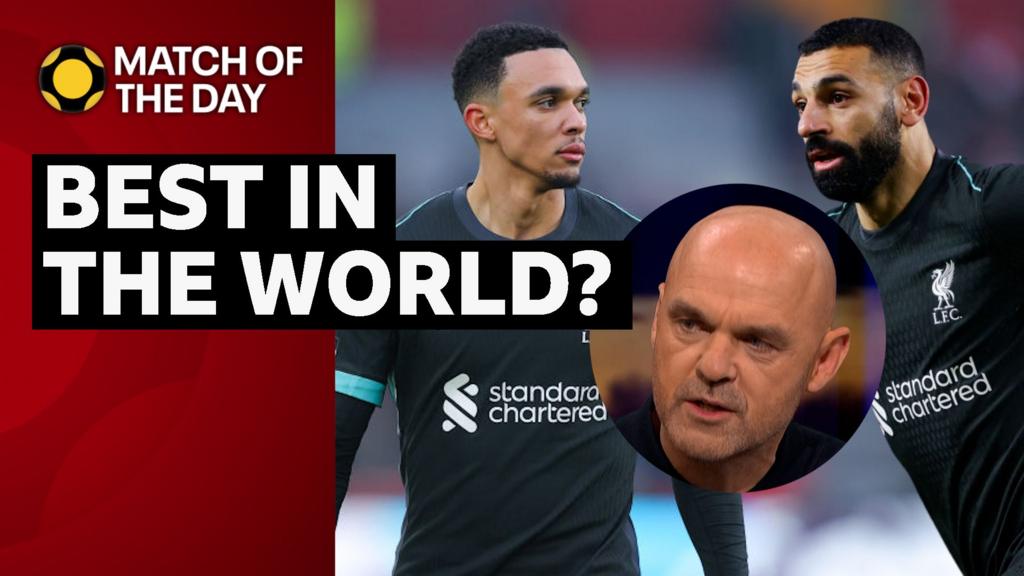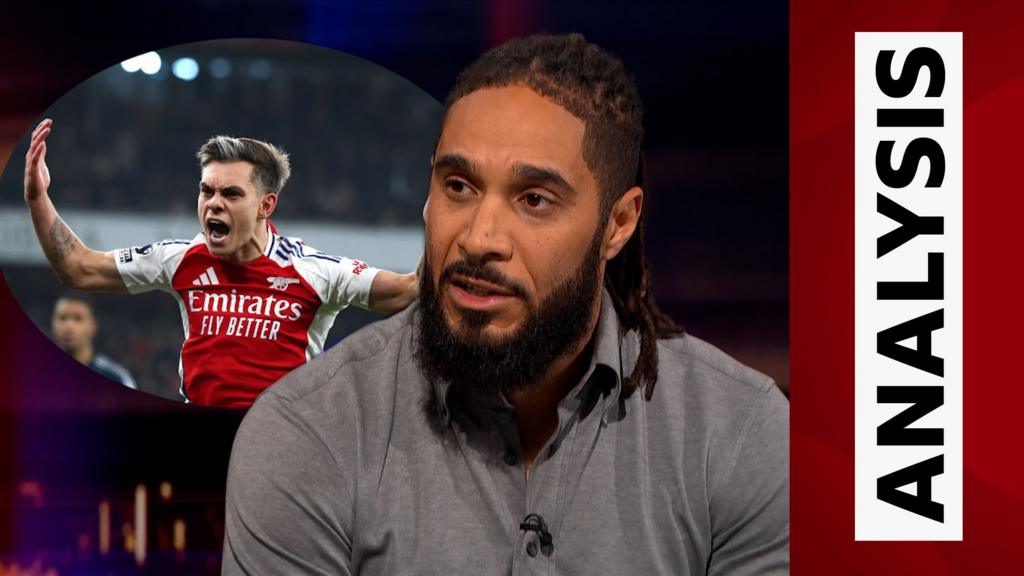ARTICLE AD BOX
 Image source, SNS
Image source, SNS
Peter Wright won 21 Scotland caps and toured with the British and Irish Lions in 1993
BBC Scotland's chief sports writer
Scotland’s first game of the autumn series against Fiji was only minutes old when Peter Wright picked up his microphone in the manner of a warrior picking up a claymore and let the referee have it with both barrels.
On the gantry at Murrayfield, we laughed at the big man’s fury at a breakdown penalty awarded in error. We were also relieved to see the 1993 British and Irish Lions tourist back to his old self.
What many could not have known was that the 21-time Scotland prop and now BBC Radio Scotland pundit had been diagnosed with prostate cancer earlier in the year.
It had been a hard year, full of fear and anxiety, panic attacks and freakish coincidence.
His brother, Graham, had been diagnosed with prostate cancer weeks before him. The only reason Peter, 56, got checked was because of his brother’s condition. He caught it early, mercifully. He thinks now that Graham might have saved his life.
And he wants to talk about it. Mostly, he wants to get the message out there that men need to get their prostate checked - never mind thinking you are too young, just get it done.
'Your mind wanders... I started having panic attacks'
This being Wrighty, gallows humour plays a part in his story.
There was a game at Lasswade, you see. Then the game was cancelled, but the lunch carried on and so did the boozing.
It was last December and he threw himself into the pints in the way he would have hurled himself into a scrum back in the day. Total commitment.
He assumed that was the reason why he felt so ropey the following morning.
"I had pains in my stomach," he recalls. "I was feeling sick and thought it was just down to the drink. But as it went on and on into December I'm thinking, 'there's obviously something not quite right here'."
He got a phone call soon after from his older brother, Graham and remembers: "He said, ‘look, I’ve been at the doctors… I have prostate cancer'.
"It just so happened that I had a doctor's appointment for something else but I got the test while I was there."
The medics had concerns. He waited for the MRI scan, then he waited for the MRI scan results and all the while his mind was doing somersaults.
"I've potentially got cancer," he pondered. "Is it life threatening? Is it not?
"You've got people who have prostate cancer who don't need treatment, who can live with it for years and years and then you've got the other side where it's very aggressive and sometimes if you don't catch it quick enough… it’s a time issue.”
He says he's an overthinker and laughs at how people might react to that notion.
"Because I drive lorries for a living, you're sat in your lorry for long periods on your own and your mind just wanders and thinks about things you shouldn't be thinking about," he says.
"That's where I started having panic attacks, which were later diagnosed as anxiety. I had to take two weeks off work.
"I was doing a job early one morning and just started to sweat and my heart started pumping and I was thinking, 'what's happening here?' I thought it was a heart attack. I went to the accident and emergency.
"I was coaching at the time, but I couldn't go and coach because when I was going into crowds, I couldn't handle it, I couldn't talk to people, I just didn't want to go.
"I wanted to go home and shut that door because that was where I felt safest."
'Rugby was my safety net'
All of this was going on during the 2024 Six Nations.
Wrighty did the home games from Murrayfield but didn’t feel up to travelling to Cardiff, Rome and Dublin. The BBC Scotland studio in Glasgow was as far as he felt he could go.
"Rugby has been a lot of things in my life and it was the safety net as well," he says.
When the waiting ended and the cancer was confirmed, it came with as much optimism as you can get in these situations.
It was confined to the prostate. It was spotted early. There would be tough days ahead but he was going to be fine.
Still, there were difficult conversations to be had with family.
"My mum's still alive and my brother had to tell my mum that he had cancer and then I had to go a few weeks later to tell her that her other son's got it as well," he recalls.
"She was outstanding. She's in her 80s, but she was more positive than anybody. I think that's just what mums are like, isn't it?
"It was low-level cancer, everything was positive apart from the fact I had cancer. I went to my hypnotherapist and he says, 'now we know the diagnosis, we can help you even more'.
"He says, 'the problem you've had before is that you were thinking about having cancer or not having cancer and that's giving you an adrenaline rush, which is basically feeding the anxiety'."
Peter Wright on prostate cancer diagnosis
The hypnotherapist was right. Clarity on his condition helped stave off the anxiety.
He spoke to people who had gone, or were going through, prostate cancer treatment, his former team-mate Craig Chalmers chief among them.
"Craig was a couple of months ahead of me in his journey and he was waiting for his operation, so we had a lot of good conversations," Wright says, "I’d come off the phone after speaking to Craig and I'd feel... pretty good.
"The fact that I'd managed to tell him stuff… that was when I started to think, 'you know what, chatting about it is not a bad thing'. Talking does help."
His surgery took place on 17 September and it was a success. His bloods are good. Every four months he’ll go for another test and then after a while it’ll be every six months. "So at the moment, I’m cancer free," he said.
When Sir Chris Hoy announced the shocking news of his terminal prostate cancer, Wrighty said he "burst into tears" and said: "Here's a guy as fit as a fiddle, a massive sporting hero of mine, a great athlete and only 48 years old."
He is full of awe and support for the great Olympian and, like Hoy, he appeals again for early screening for men with a family history of prostate cancer while urging those even under the age of 50 to see their doctor.
He’s had a scare but he’s going to survive and prosper and will be behind the microphone for many years to come. "I’m one of the lucky ones," he adds.
If you have been affected by any of the issues in this interview, you can contact BBC Actionline

 1 month ago
9
1 month ago
9








 English (US) ·
English (US) ·